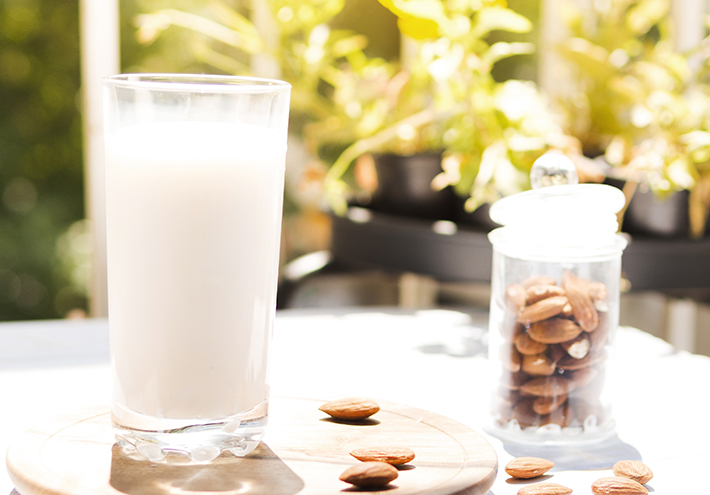EVERY FIFTH SLOVAK FIGHTS LACTOSE INTOLERANCE IN ADULTHOOD
Get rid of a bloated belly in a healthy and tasty way
Did you know that even if you have never had any problems with milk and dairy products, it doesn’t have to be that way forever? As a person gets older, the activity of the lactase enzymes, which are responsible for breaking down lactose in the gut, decreases. But no mistake – intolerance is not a disease, it’s more of a digestive problem. The good news is that even without milk, you can live life to the fullest and treat yourself too!
WHAT ARE THE SYMPTOMS?
You can recognize lactose intolerance by the unpleasant bloating that results from undigested lactose particles moving from the small intestine into the large intestine. Therefore, after eating dairy products you suddenly feel indigestion, often get cramps, abdominal pain or diarrhoea. The extent of these problems depends on the extent to which the enzyme works in your body. However, do not confuse lactose intolerance with a milk protein allergy – approximately three percent of the population suffers from that, and treating it requires much stricter rules and regular medical supervision.
FLEXIBLE EATING WILL HELP YOU
If you suspect that lactose intolerance may be behind your digestive problems, start noticing what and how much you consume during the day. Instead of going for radical solutions and getting unnecessarily stressed, try to introduce more plant-based foods into your diet step by step. They can quickly make digestion easier and at the same time they are a valuable source of calcium for your body. “Because of its ease of digestion and good utilization of several nutrients, tofu is very suitable for therapeutic and preventive diets. It is an excellent source of protein for people with digestive problems,” says dietitian MUDr. Alexandra Frolkovičová, adding: “That’s why I recommend that a person with a mixed diet has a few ‘plant-based’ days a week.”
In the early 1990s, a new term appeared, “flexitarian”, which combines the principles of varied eating with a preference for plant-based foods. Flexitarians can be defined as anyone who does not need to become a vegetarian, but understands that reducing their intake of animal products and increasing their consumption of plant-based foods and soy products benefits them. Especially if you suffer from lactose intolerance, plant-based products will help you replace many popular foods, including pasta, pancakes or “mock” potato gratin. 100% plant-based cream spreads on fresh bread will reliably satisfy your hunger without complicating life with digestive problems.
FANCY SOMETHING SWEET? NOT A PROBLEM
Problems associated with lactose intolerance are most often felt after our morning coffee with milk or after eating foods based on a combination of traditional milk, cream or whipped cream. You guessed it right, in addition to puddings and creamy yoghurts, you must also be careful with tempting desserts. It’s therefore better to choose vegan versions, where you can be sure that no lactose will appear, or bake something at home, such as a delicious plant-based cheesecake. You simply replace animal products with plant-based products and you will see that even your smallest and most demanding diners will not recognize the difference. Especially when children are recovering from illness or indigestion, increased use of plant-based products can be a good way to give them healthy and tasty treats. “The studies carried out so far show that tofu and soya are foods suitable for everyday consumption, and the younger that people start eating them, the more significant the preventative effect against several diseases,” confirms MUDr. Frolkovičová.
WATCH OUT!
Lactose is frequently used as an additive in some types of medicines or nutritional supplements. If you have high sensitivity to it, you should study the information leaflet in detail and always consult a specialist before taking anything new. You will also find lactose in many cereals, sweets, and even instant soup.
It is not uncommon for you to be suddenly surprised by a temporary intolerance to lactose, especially after you have had a viral bowel disease. It is very common in children who are prone to rotavirus, which causes diarrhoea. If their digestive problems persist after treatment, it is highly likely that their intestinal mucosa needs to recover completely in order to be able to function fully again. After the removal of milk and dairy products, this phenomenon usually disappears completely.






